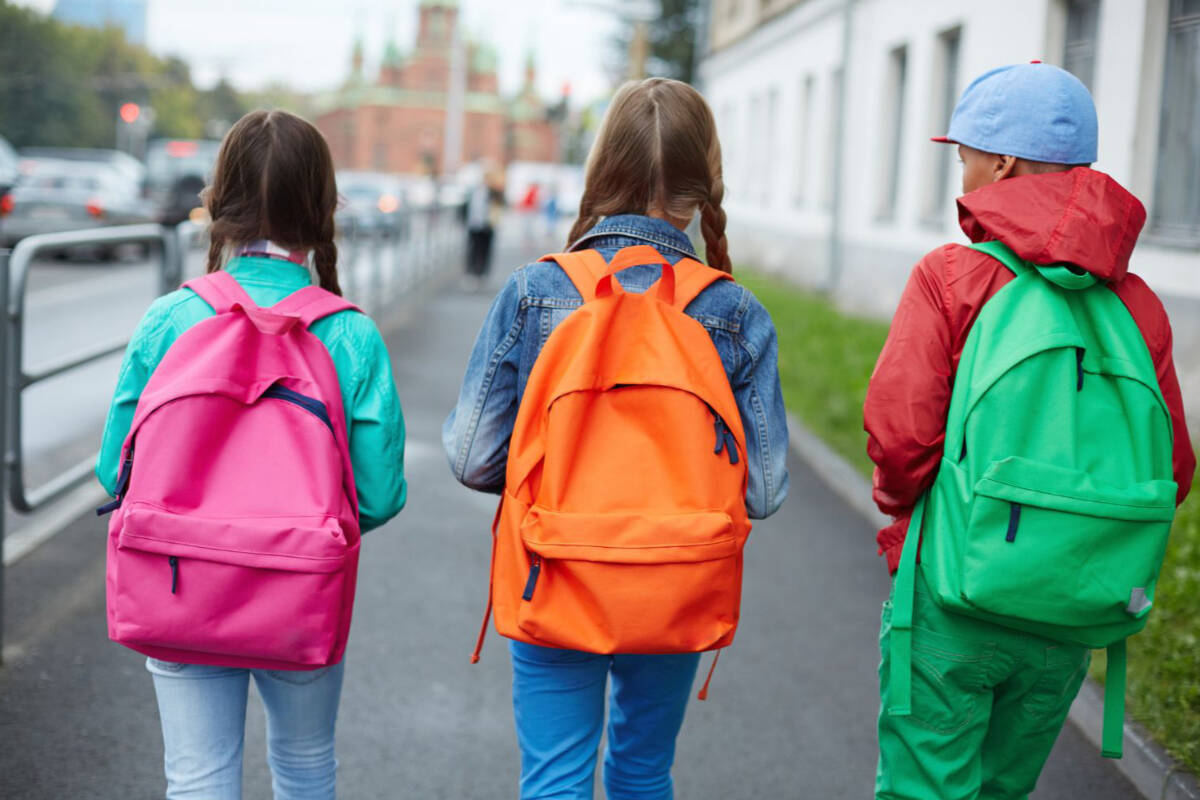Back to school prep should include a refresher on healthy life choices

Set your kids up for success in all areas of their lives this school year!
“Studies show alcohol experimentation starts as young as 13 and cannabis exposure is starting as young as 14,” says Chantal Vallerand, Executive Director at Drug Free Kids Canada. “That can be hard to read, but it’s not all bad news. Studies also show that parents are a trusted source of information for young teens and even young adults. That means you have a lot of sway with your kids and how they navigate their teen years.”
Set your kids up for success this fall by creating an open dialogue around drug and alcohol use. Creating a safe environment for kids and teens to ask tough questions is one of the best ways to help them make healthy choices this school year.
Age appropriate conversations around substance use should start long before the teen years, Vallerand says.
“Start healthy habits early by teaching toddlers that while vitamins and medicine taste good and are an important part of keeping them healthy, they can also make them sick if taken without permission from you,” Vallerand says.
By the time kids are entering kindergarten they should be able to identify dangerous household products.
“When talking about the packaging labels with images like ‘fire hazard’, ‘poisonous’, ‘corrosive’, or ‘explosive’, try using words like ‘hurt’,’burn’, or ‘sting’ so they know what those labels mean,” Vallerand says. “Also be sure to place harmful products and all medicines somewhere safe, so they can’t be accessed by young children.”
Parents and caregivers can start more honest and fact-based communication by age nine.
“When starting more serious conversations remember that fear tactics generally don’t work,” Vallerand says. “Stick to facts, keep conversations light and casual. The goal is to create a safe environment around these topics so they feel comfortable coming back to you with future questions.”
Create a substance use prevention plan
“Substance use is often masking underlying struggles with healthy coping mechanisms,” Vallerand says. “A good prevention plan should include helping your teen find healthy coping mechanisms for stress. If your teen is showing signs of struggling with their mental health, consider getting them outside support sooner rather then later.”
Research shows that 49 per cent of teens who admitted to having used over-the-counter medication without a prescription say they got them from home, as a direct result of parents and guardians not securing medications. A dangerous myth amongst youth is that pills from home are safer than street drugs.
“Remind your teens that all types of over-the-counter medication, including pain medication, prescription medication and natural medication are dangerous when used improperly,” Vallerand says. “Keep it secured safely in your home at all times and return any unused or expired medication to your local pharmacy”
Parent and youth support
Educate yourself so you’re prepared to answer questions your kids have about drugs and alcohol. Get the information you need to educate and support your child online at drugfreekidscanada.org.
Concerned your child might be experimenting already? Find support by phone at 1-866-381-1511 or through live chat online here. Drug Free Kids Canada’s parent support hub is available 24/7 offering answers to all of your questions and concerns.
For more information visit drugfreekidscanada.org and follow them on Facebook, Instagram and Youtube for additional support and resources.
